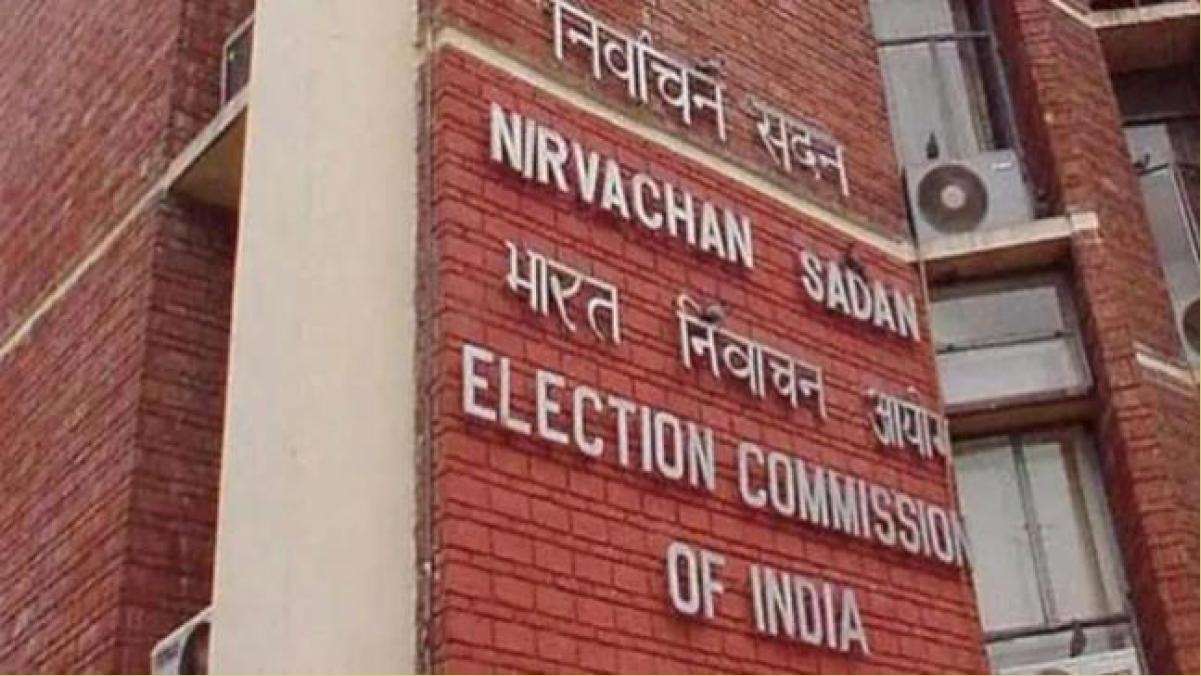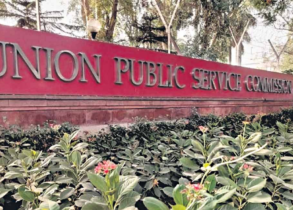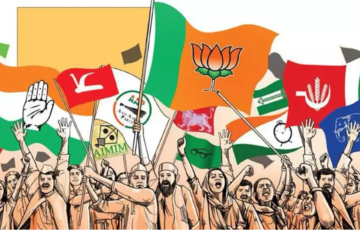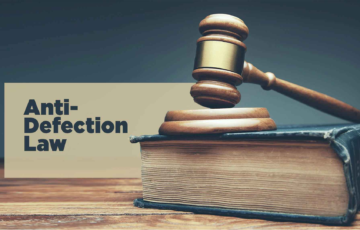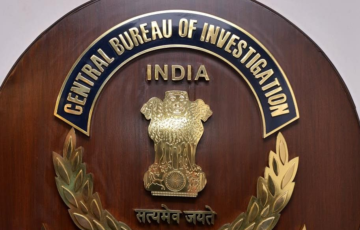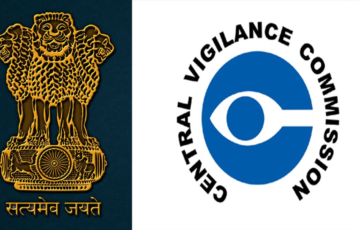ELECTION COMMISSION OF INDIA
Introduction
The Election Commission in India is a permanent and independent body established by the Constitution to ensure free and fair elections. Its powers, as outlined in Article 324 of the Constitution, include the superintendence, direction, and control of elections for parliament, state legislatures, the office of the president, and the office of the vice-president. The Election Commission is a national body, overseeing elections for both the Central government and state governments. It’s important to note that the Election Commission is not involved in elections for panchayats and municipalities, as separate State Election Commissions are responsible for those.
Composition of ECI
The composition of the Election Commission of India includes:
- Chief Election Commissioner (CEC): The Election Commission is headed by the Chief Election Commissioner. The CEC is responsible for overseeing and managing the conduct of elections in the country.
- Other Election Commissioners: In addition to the Chief Election Commissioner, there may be other Election Commissioners. The specific number of additional Election Commissioners is decided by the President as needed.
- Regional Commissioners: The President, after consulting with the Election Commission, may appoint Regional Commissioners as necessary to assist the Election Commission in its functions.
Appointment of Members of Election Commission of India
The appointment of members of the Election Commission of India is governed by the Constitution and certain legal provisions as mentioned below:
- Qualifications: The Constitution does not specify any particular educational, legal, administrative, or judicial qualifications for the appointment of members of the Election Commission.
- Parliamentary Authority: The Constitution grants the authority to the Parliament to enact laws pertaining to the appointment of members of the Election Commission. However, as of the information available until September 2021, the Parliament had not enacted any specific law regarding these appointments.
- Supreme Court’s Concerns: In July 2017, the Supreme Court of India heard a plea calling for the constitution of a committee comprising the Prime Minister, the leader of the opposition, and the Chief Justice of India for the appointment of Election Commissioners. The Supreme Court expressed concerns over the absence of a law regulating the appointment of members to the Election Commission and the Chief Election Commissioner.
- Government’s Directive: Following the Supreme Court’s observations, the government was directed to formalize a law for the appointment of members of the Election Commission. This indicates a need for legal reforms and a structured appointment process for these positions.
Structure and Tenure
The Election Commission of India consists of the following members:
- Chief Election Commissioner (CEC): The Commission is headed by the Chief Election Commissioner, who is responsible for overseeing and managing the conduct of elections in the country.
- Two Election Commissioners: In addition to the Chief Election Commissioner, the Commission includes two other Election Commissioners. The Constitution empowers the President to appoint these members.
- The tenure for members of the Election Commission is as follows: Their term lasts for six years or until they reach the age of 65, whichever comes earlier.
- The Constitution does not prescribe specific terms for the members of the Election Commission. However, they enjoy certain key features:
- The Chief Election Commissioner and the two other Election Commissioners have equal powers.
- They receive salaries, allowances, and other perks that are on par with those of a judge of the Supreme Court of India.
- The secretariat of the Election Commission is based in New Delhi, serving as the administrative and operational hub for the Commission’s activities.
Removal
- The removal of the Chief Election Commissioner and other Election Commissioners in India is subject to specific constitutional provisions.
- Chief Election Commissioner’s Removal: The Chief Election Commissioner can only be removed from office under circumstances and through a procedure similar to that of a judge of the Supreme Court.
- This means that the Chief Election Commissioner can be removed by the President based on specific grounds of proved misbehavior or incapacity. The removal process requires a resolution to that effect passed by a special majority in both houses of Parliament.
- A special majority typically involves the support of at least two-thirds of the members present and voting, along with more than 50% of the total strength of the house.
- Removal of Other Election Commissioners: In contrast, other Election Commissioners and Regional Commissioners can be removed from office only upon the recommendation of the Chief Election Commissioner.
- This means that their removal is contingent on the Chief Election Commissioner’s suggestion. The same criteria for a special majority in Parliament apply to this process.
- These constitutional provisions are in place to ensure the independence and impartiality of the Election Commission and to protect its members from arbitrary removal.
- Chief Election Commissioner’s Removal: The Chief Election Commissioner can only be removed from office under circumstances and through a procedure similar to that of a judge of the Supreme Court.
Functions Election Commission of India
Administrative functions
- Delimitation of Constituencies: The Election Commission, based on the Delimitation Commission Act, determines the territorial areas of electoral constituencies. It periodically reviews and revises these constituencies to ensure fair and equitable representation.
- Electoral Rolls: The Commission prepares and revises electoral rolls, which list all eligible voters. It is responsible for maintaining accurate and up-to-date voter registration.
- Political Party Recognition: The Election Commission grants recognition to political parties and allocates election symbols to them. This recognition is important for parties to participate in elections.
- Election Scheduling: The Commission notifies the dates and schedules of elections. It also scrutinizes nomination papers filed by candidates, ensuring that they meet the eligibility criteria.
- Election Supervision: The Election Commission supervises the entire electoral machinery across the country to ensure that elections are conducted freely and fairly. This includes overseeing the conduct of elections, maintaining law and order, and addressing any issues that may arise during the electoral process.
- Code of Conduct: The Commission establishes a Code of Conduct that political parties, candidates, and other stakeholders must adhere to during the election period. This code promotes fair and ethical campaigning.
- Preventing Irregularities: In cases of irregularities such as booth capturing or electoral malpractice, the Election Commission has the authority to cancel polls and take corrective measures to ensure the integrity of the electoral process.
Quasi-Judicial Function
- Settling Disputes Related to Political Party Recognition: The Election Commission has the authority to settle disputes related to the recognition granted to political parties. If there are disagreements or challenges regarding a party’s recognition status, the Commission can make decisions to resolve these issues.
- Adjudicating on Election Symbols: The Commission acts as a court for matters related to disputes arising out of election symbols allocated to political parties. It ensures that election symbols are allotted fairly and resolves conflicts over symbol allocation.
- Disqualification for Failing to Lodge Election Expenses Account: The Election Commission has the power to disqualify a candidate who fails to submit an account of their election expenses within the stipulated time frame. This function helps maintain transparency and accountability in election funding.
Advisory Function
- Advising on Disqualification of Members: The Commission provides advice to the President and the Governor on matters related to the disqualification of members of Parliament and the state legislature. Its opinion in such matters is binding, which means that the Commission’s recommendations must be followed.
- Advising on Elections During President’s Rule: The Commission advises the President on whether elections can be held in a state that is under President’s rule, especially concerning the extension of the period of emergency after one year. This advice is crucial for ensuring the democratic functioning of the state during extraordinary circumstances.
- In both cases, the Election Commission’s advice plays a critical role in upholding the democratic principles and legal framework of the country. It ensures that electoral processes are conducted in accordance with the law and the Constitution, even in exceptional situations.
Significance
- The Election Commission of India holds immense significance in the Indian democratic system such as:
- Ensuring Fair Elections: The primary role of the Election Commission is to conduct free and fair elections.
- For example, during the general elections, the Commission ensures that all political parties have equal opportunities to campaign and reach voters. It monitors campaign expenditures, scrutinizes nomination papers, and conducts exit polls to maintain fairness.
- Preventing Electoral Malpractice: The Commission takes strict measures to prevent electoral malpractice.
- For instance, during state assembly elections, it deploys central armed police forces to sensitive polling booths to prevent booth capturing and voter intimidation. This ensures that the electoral process is free from undue influence.
- Impartiality in Conflict Zones: In regions affected by conflict, the Election Commission plays a critical role. In Jammu and Kashmir.
- For example, it has successfully conducted elections in challenging circumstances. It ensures that voters in these areas have the opportunity to exercise their democratic rights.
- Advising on Constitutional Matters: The Commission advises the President and the Governor on critical constitutional matters.
- In 2020, during the COVID-19 pandemic, it advised the President to postpone legislative council elections in Andhra Pradesh, emphasizing public health and safety.
- Promoting Voter Awareness: The Commission actively conducts voter awareness campaigns, such as the “Systematic Voters’ Education and Electoral Participation” (SVEEP) program. These campaigns educate voters about their rights and responsibilities.
- For example, they encourage first-time voters to register and participate in elections.
- Upholding Democracy in Extraordinary Circumstances: During emergencies and President’s rule, the Commission’s advice on conducting elections is vital for upholding democratic norms.
- For instance, it recommended the scheduling of elections in Jammu and Kashmir following its reorganization into a union territory.
- Transparency and Accountability: The Commission’s transparency in releasing election schedules, candidate lists, and results ensures accountability in the electoral process. This transparency is particularly evident during the counting of votes, where real-time updates and results are made publicly available.
- Maintaining Public Trust: By conducting elections impartially and upholding democratic principles, the Commission maintains public trust in the electoral system. This trust is evident when millions of voters across the country participate in elections, believing that their votes count.
Challenges
- The Election Commission of India (ECI) faces several challenges in its role as the guardian of free and fair elections in the country:
- Lack of Clarity on State Official Transfers: The ECI faces ambiguity regarding its authority to transfer state government officials in the exercise of its general powers under Article 324 of the Constitution or under the model code. This lack of clarity can lead to challenges in ensuring the neutrality of state officials during the electoral process.
- Example: In the 2014 Lok Sabha elections, the Election Commission of India (ECI) transferred state government officials. Some officials challenged these transfers in court, questioning the ECI’s authority under Article 324. The courts ruled that the ECI can transfer officials under Article 324, but only when essential to ensure free and fair elections.
- Electoral Malpractice and Political Criminalization: Electoral malpractices and violence driven by the influence of money have led to the criminalization of politics. The ECI struggles to hold political parties accountable for such violations. It faces challenges in taking punitive measures against parties responsible for these breaches.
- For example, there are frequent reports of candidates bribing voters, using hate speech, and engaging in violence against their opponents.
- Limited Powers for Party Regulation: The ECI does not possess comprehensive regulatory authority over political parties, particularly concerning their finances and inner-party democracy. This limitation restricts the Commission’s ability to ensure transparency and fairness within political organizations.
- For example, in 2012, the ECI was criticized for its handling of the Gujarat Assembly elections. Some people argued that the ECI was biased in favor of the ruling Bharatiya Janata Party (BJP).
- Lack of Full Independence: The ECI is not a fully independent body, and the process for selecting the Chief Election Commissioner (CEC) and the two other commissioners is influenced by the ruling government. This lack of complete independence can raise concerns about potential bias in the decision-making process.
- Addressing these challenges is crucial for strengthening the functioning of the ECI and ensuring the continued integrity of India’s electoral process. Efforts to enhance the ECI’s authority, transparency, and independence can contribute to more effective oversight and regulation of elections in the country.
Way Forward
- Several committees and reports have proposed comprehensive electoral reforms in India to enhance the transparency, integrity, and efficiency of the electoral process. Here are the key recommendations in more detail:
- Appointment of Commissioners: The Tarkunde Committee (1975) and Goswami Committees (1990) suggested that the appointment of Election Commissioners should be based on a selection process rather than being at the discretion of the President. This change would make the appointment process more impartial and free from political influence.
- Expenditure: The recommendation is to charge the expenses of the Election Commission directly to the consolidated fund of India, eliminating the need for parliamentary approval. This would streamline financial procedures and ensure that the Commission has adequate resources to carry out its responsibilities without delays.
- Protection from Removal: To ensure the independence of Election Commissioners, it is proposed that they can only be removed through impeachment, similar to the Chief Election Commissioner. This safeguard would protect them from arbitrary removal and political pressure.
- Selection Panel: The Second Administrative Reforms Commission (2nd ARC) recommended the establishment of a selection panel headed by the Prime Minister. This panel, comprising key members such as the Speaker of the Lok Sabha, the Leader of the Opposition in the Lok Sabha, the Law Minister, and the Deputy Chairman of the Rajya Sabha, would make recommendations to the President for the appointment of the Chief Election Commissioner and Election Commissioners. This would introduce a more collaborative and balanced selection process.
- VVPAT and Vote Totaliser: The use of Voter Verifiable Paper Audit Trail (VVPAT) and Vote Totalizer machines is suggested to enhance the electoral process. VVPAT allows voters to verify their choices, increasing transparency, while Vote Totalizer machines can help maintain the secrecy of votes during the counting process. These measures aim to protect voters from potential harassment by political parties.
- Legal Backing for Model Code of Conduct: It is proposed that the Model Code of Conduct, which sets guidelines for political parties and candidates during elections, be given legal backing. This would empower the Election Commission to take punitive action against those who violate the code, ensuring fair campaign practices and preventing misconduct.
| Model Code of Conduct (MCC)
The Model Code of Conduct (MCC) is a set of guidelines issued by the Election Commission of India (ECI) for the conduct of political parties and candidates during elections. The MCC is designed to ensure that elections are conducted in a free and fair manner, without any undue influence or intimidation of voters. The MCC comes into effect from the date the ECI announces the election schedule, and remains in force till the declaration of results. During this period, political parties and candidates are prohibited from engaging in a number of activities, including:
The ECI can take action against political parties and candidates who violate the MCC. This action can include fines, cancellation of candidature, or even disqualification from contesting elections. The MCC is an important tool for ensuring free and fair elections in India. It helps to create a level playing field for all candidates, and it protects the rights of voters. The MCC is a voluntary code of conduct, but political parties and candidates are generally expected to follow it. The ECI can take action against those who violate the MCC, but it is difficult to enforce the code perfectly. The MCC is an important part of the electoral process in India. It helps to ensure that elections are conducted in a free and fair manner, and that the rights of voters are protected. |
- EVM Issues: Concerns related to Electronic Voting Machines (EVMs) are suggested to be resolved by creating all-party panels and involving international experts. These panels would address issues such as malfunctions and tampering to enhance the credibility and trustworthiness of EVMs. Additionally, introducing more secure M3 type EVMs can further safeguard the electoral process.
- These recommendations collectively aim to strengthen the electoral system in India, making it more transparent, accountable, and secure, while also addressing various challenges and concerns that have emerged in the electoral process over time.
The Election Commission of India holds a pivotal role in upholding the democratic principles of the Indian Constitution. Its responsibilities encompass not only the organization of free and fair elections but also the adjudication of disputes between political parties and the government. This multifaceted role ensures that the electoral process in India remains transparent, impartial, and accountable, which is essential for the functioning of a robust democracy.
| Electoral Bond |
Here’s how it worked:
Supreme Court’s Judgement and Implications:
The judgement has several implications:
|
UPSC PREVIOUS YEAR QUESTIONS
1. Consider the following statements: (2017)
1. The Election Commission of India is a five-member body.
2. The Union Ministry of Home Affairs decides the election schedule for the conduct of both general elections and bye-elections.
3. Election Commission resolves the disputes relating to splits/mergers of recognized political parties.
Which of the statements given above is/are correct?
(a) 1 and 2 only
(b) 2 only
(c) 2 and 3 only
(d) 3 only
2. Discuss the role of the Election Commission of India in the light of the evolution of the Model Code of Conduct. (2022)

